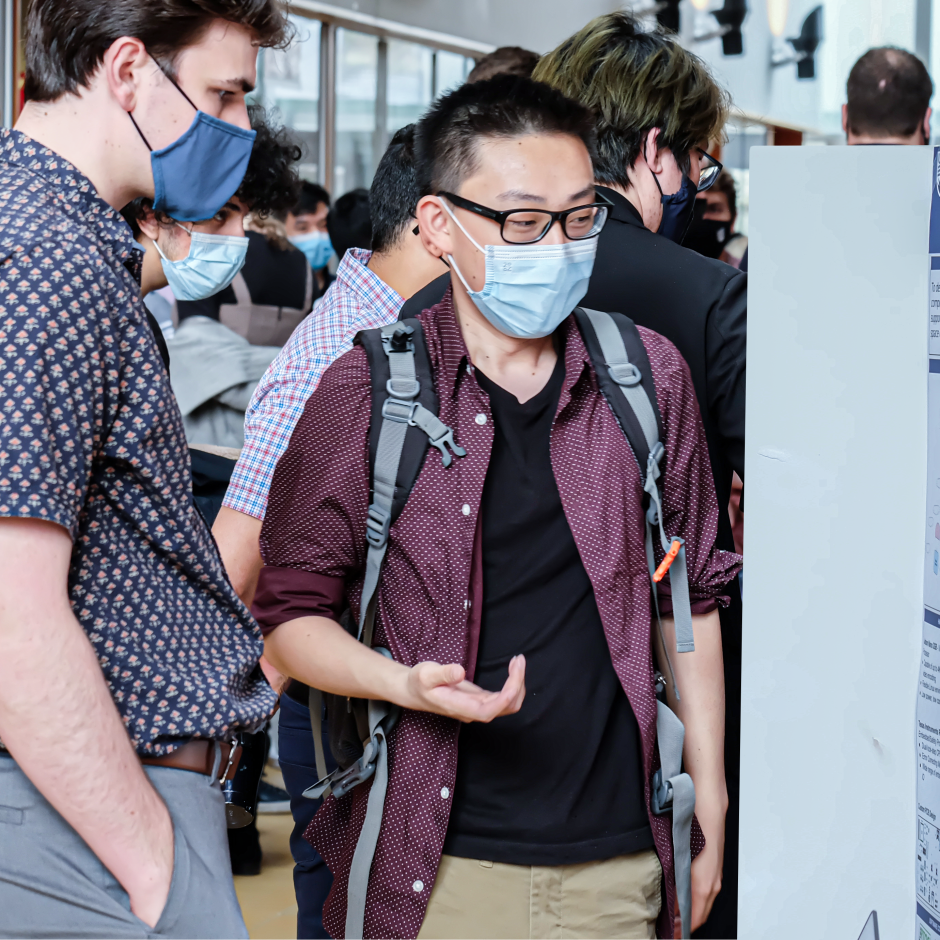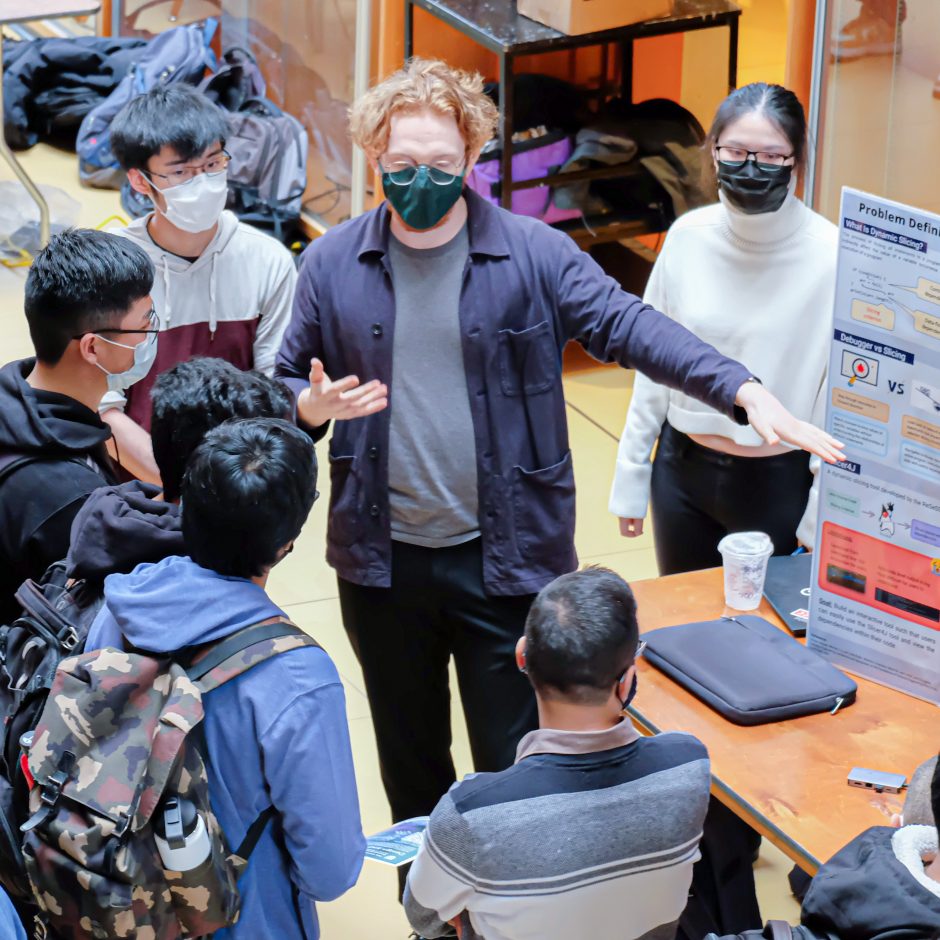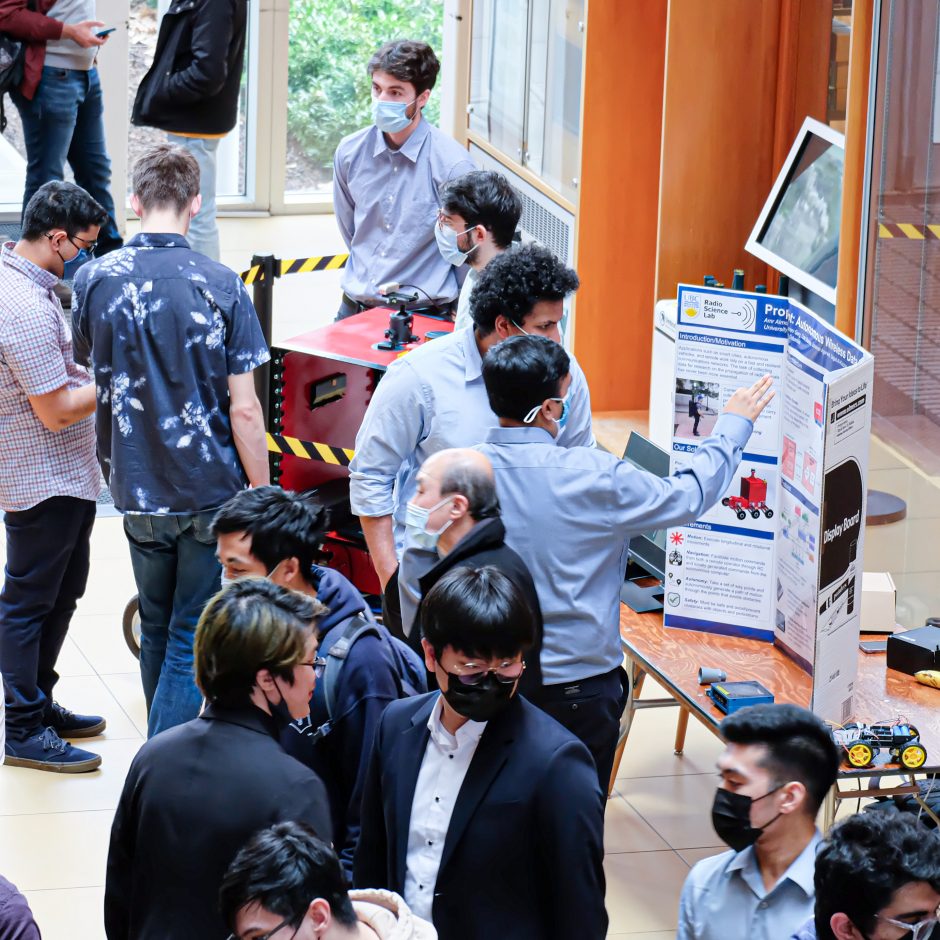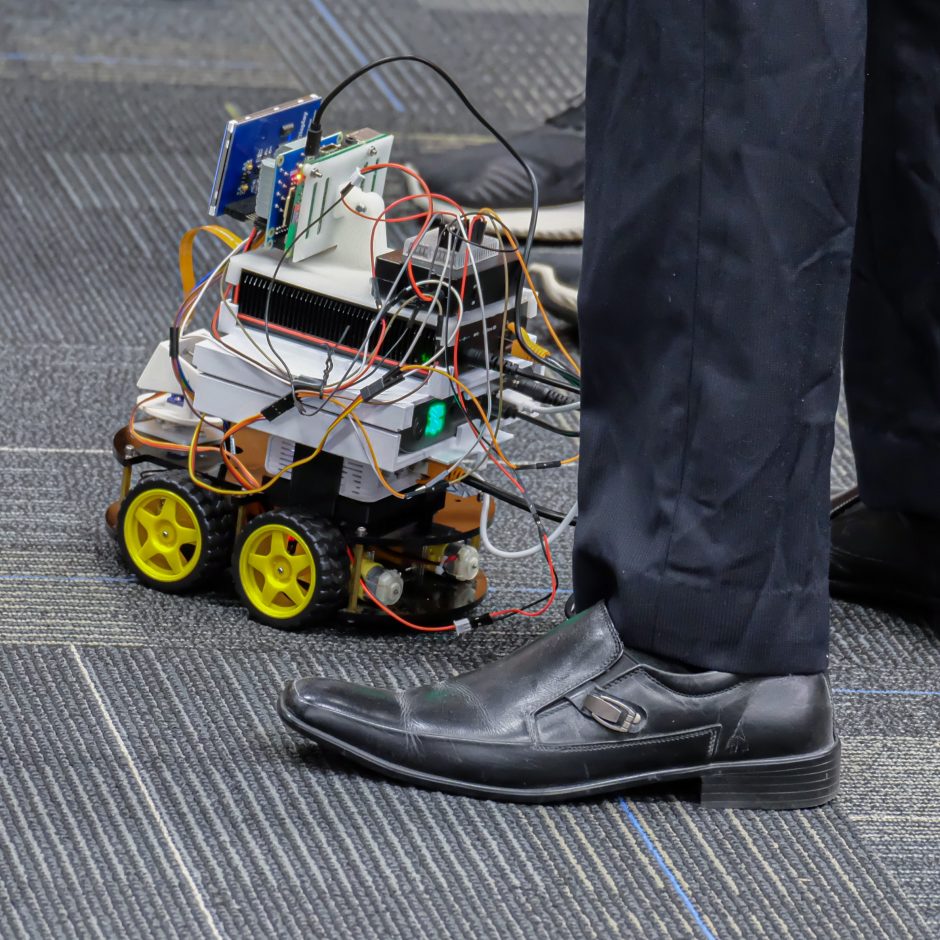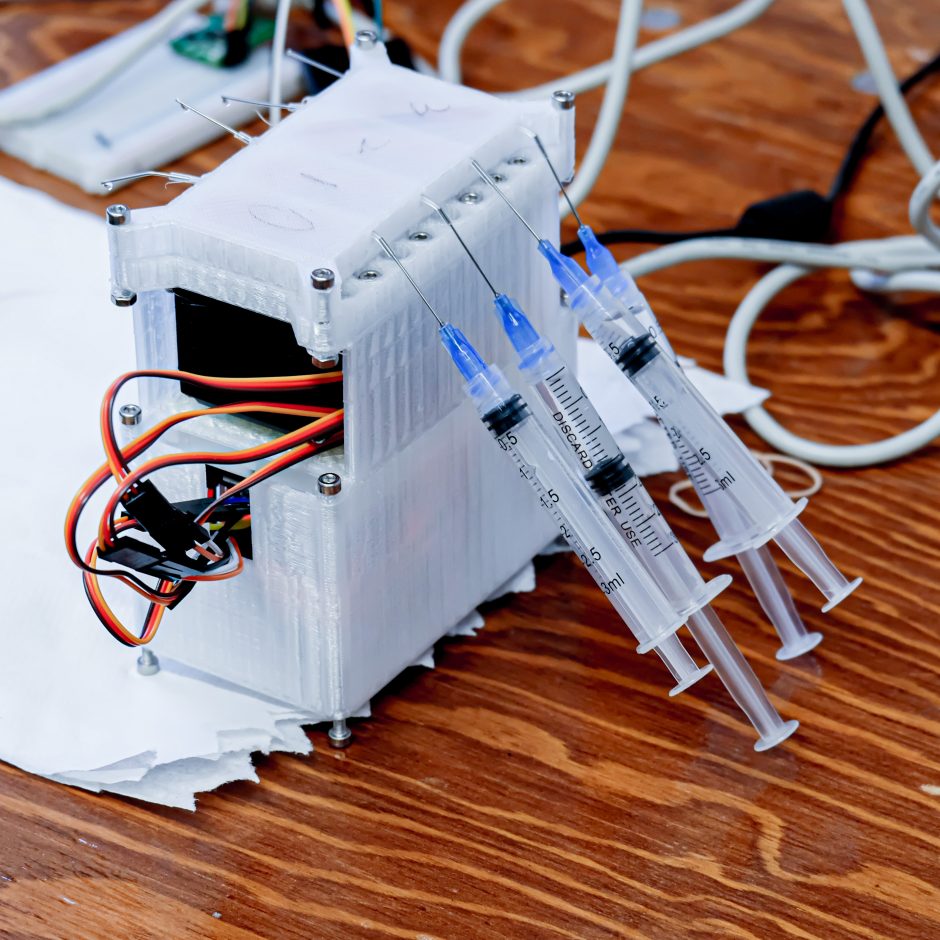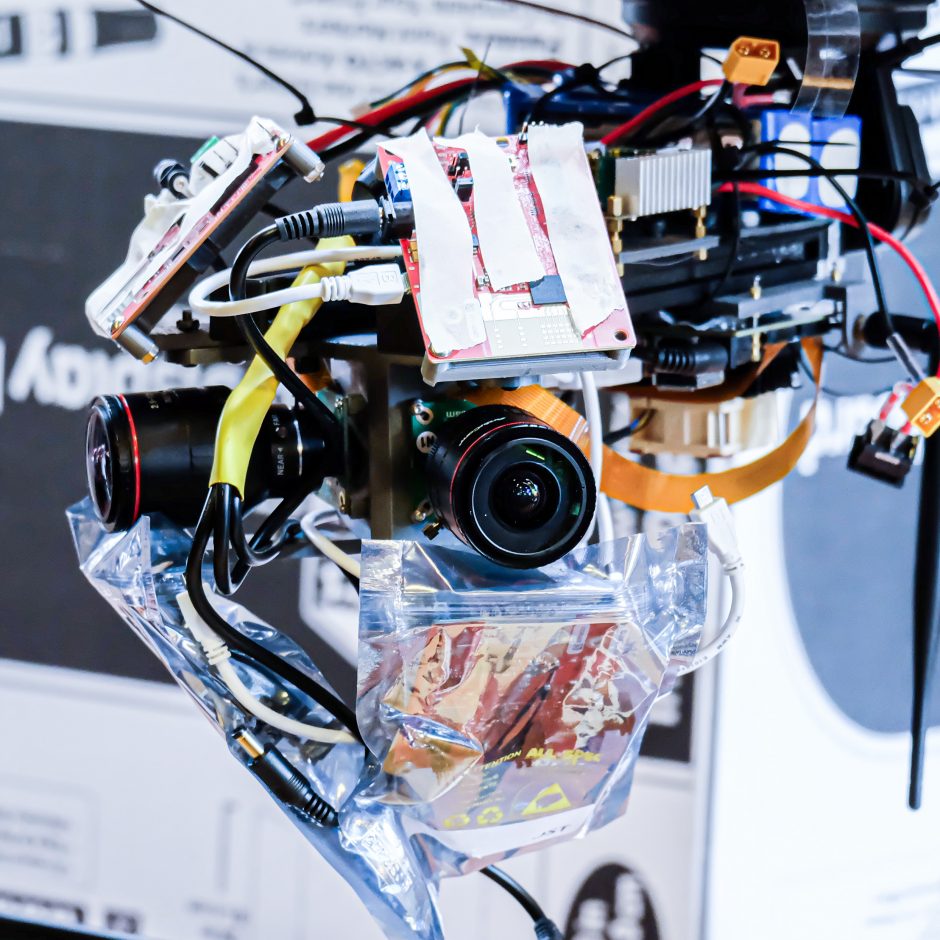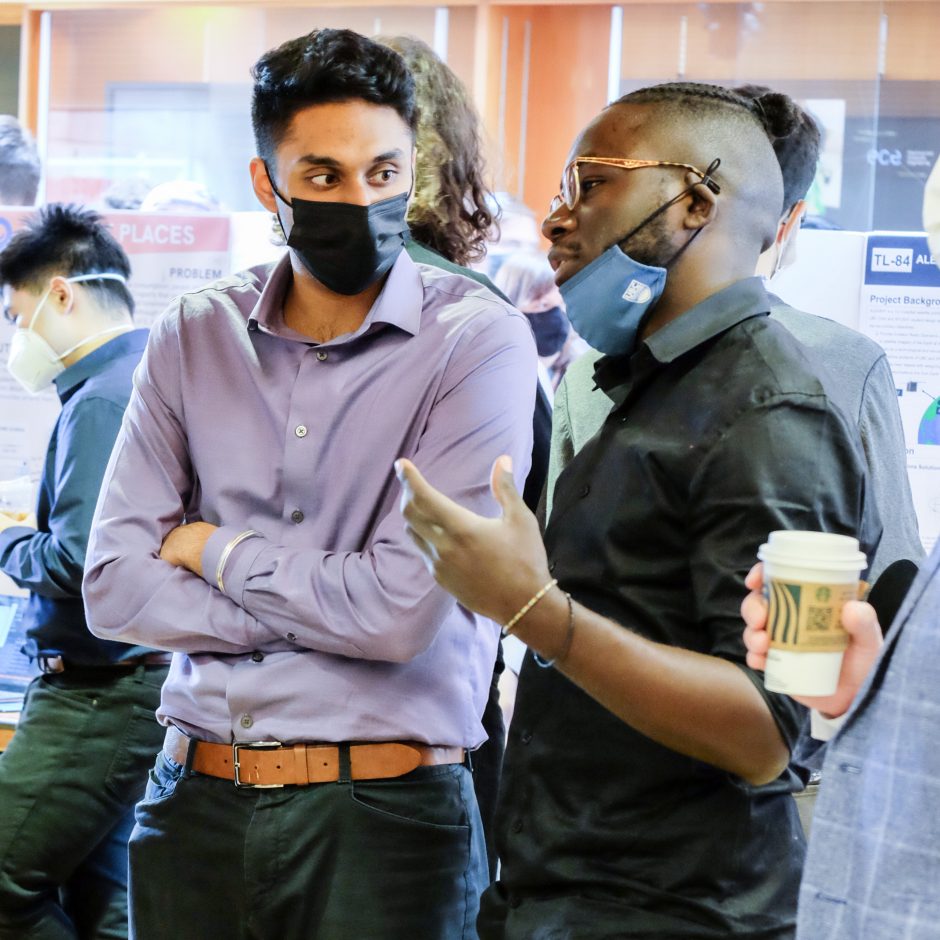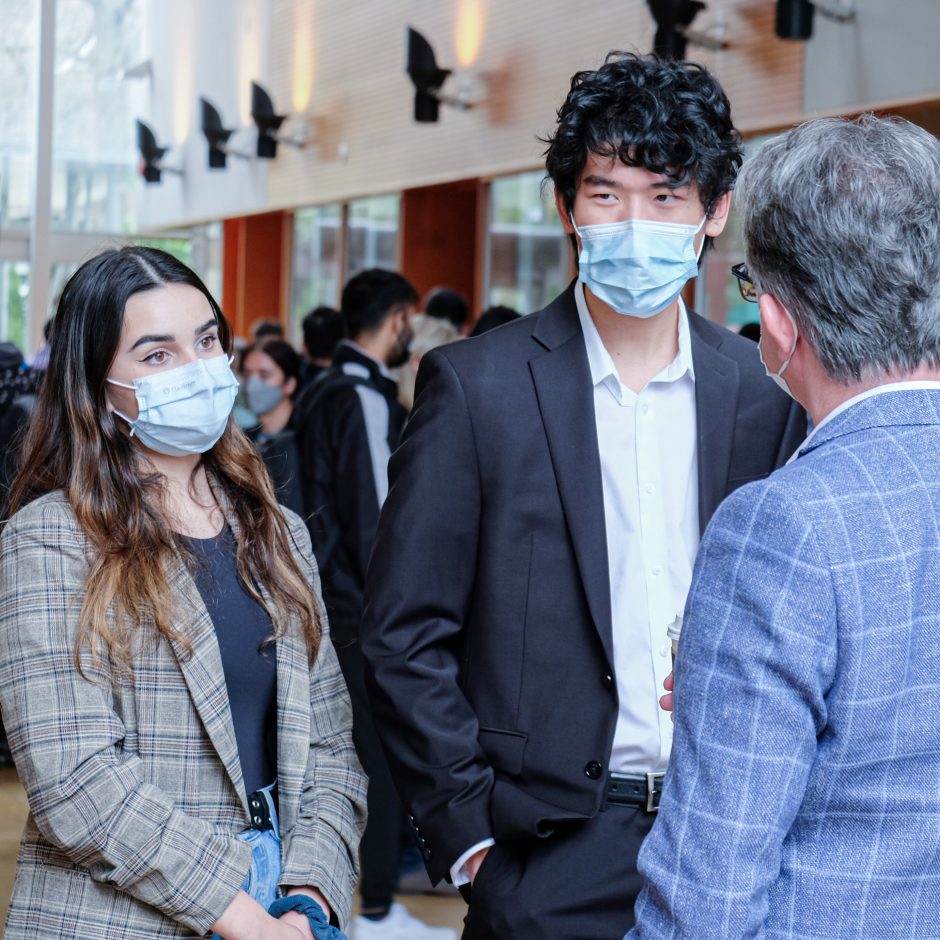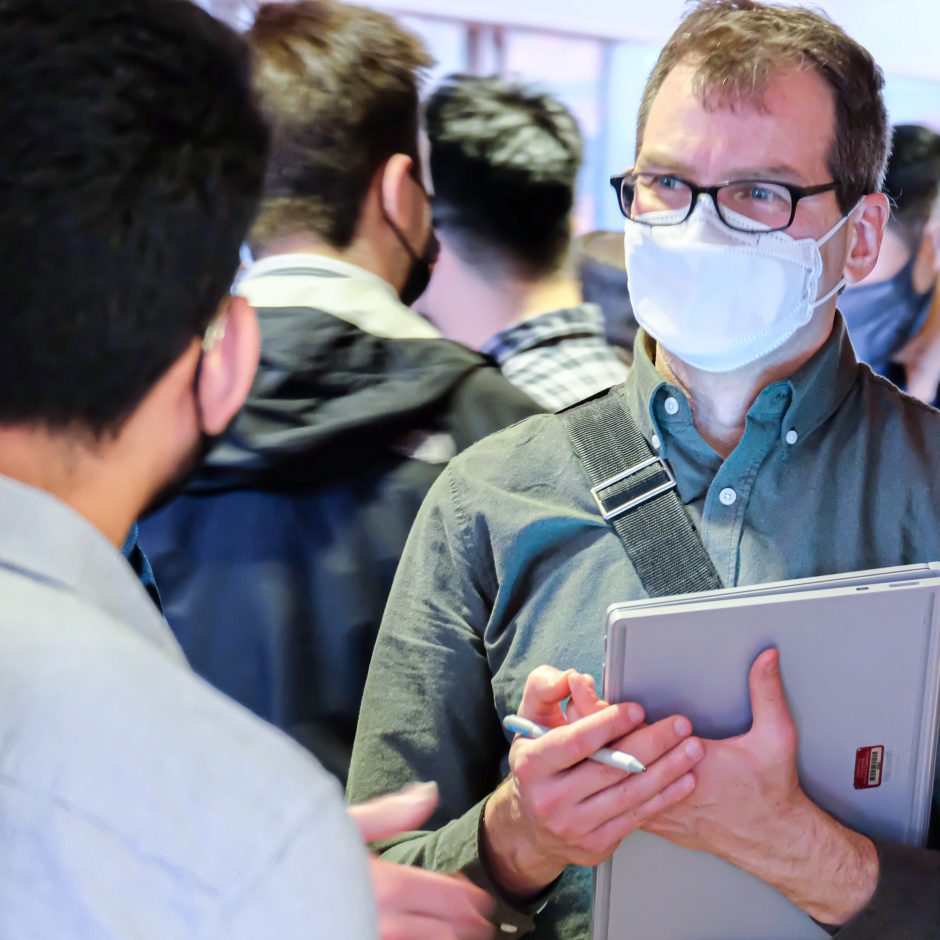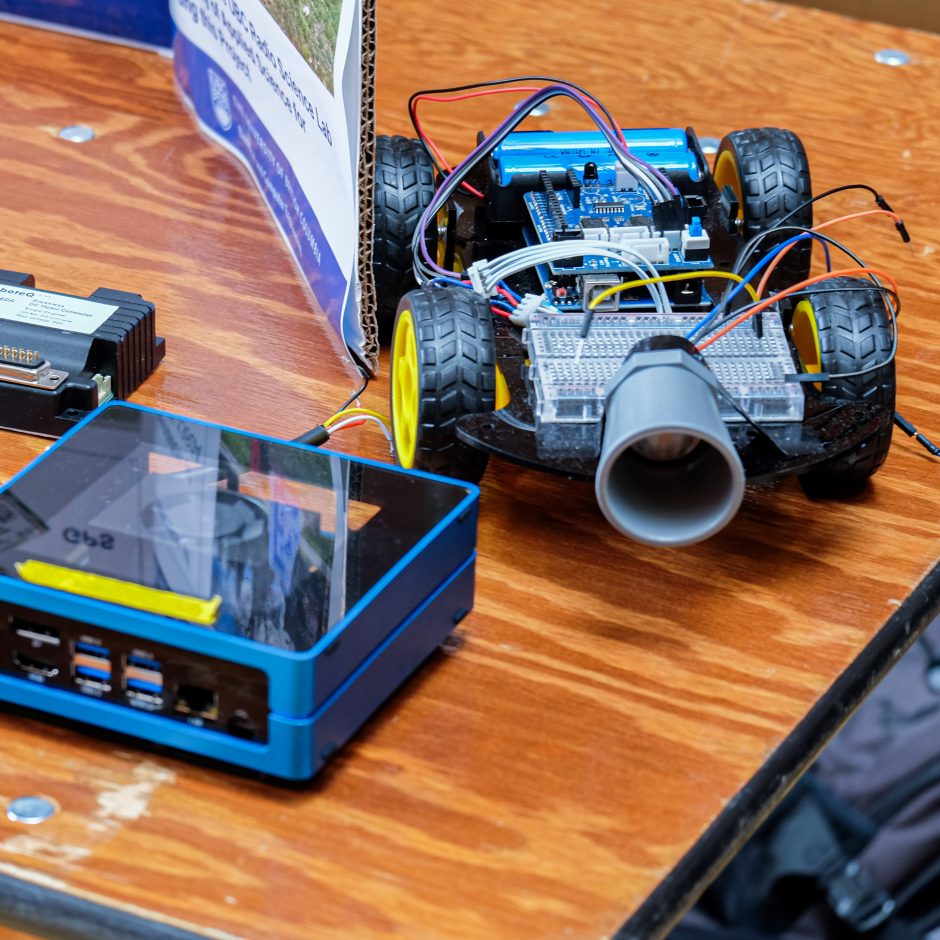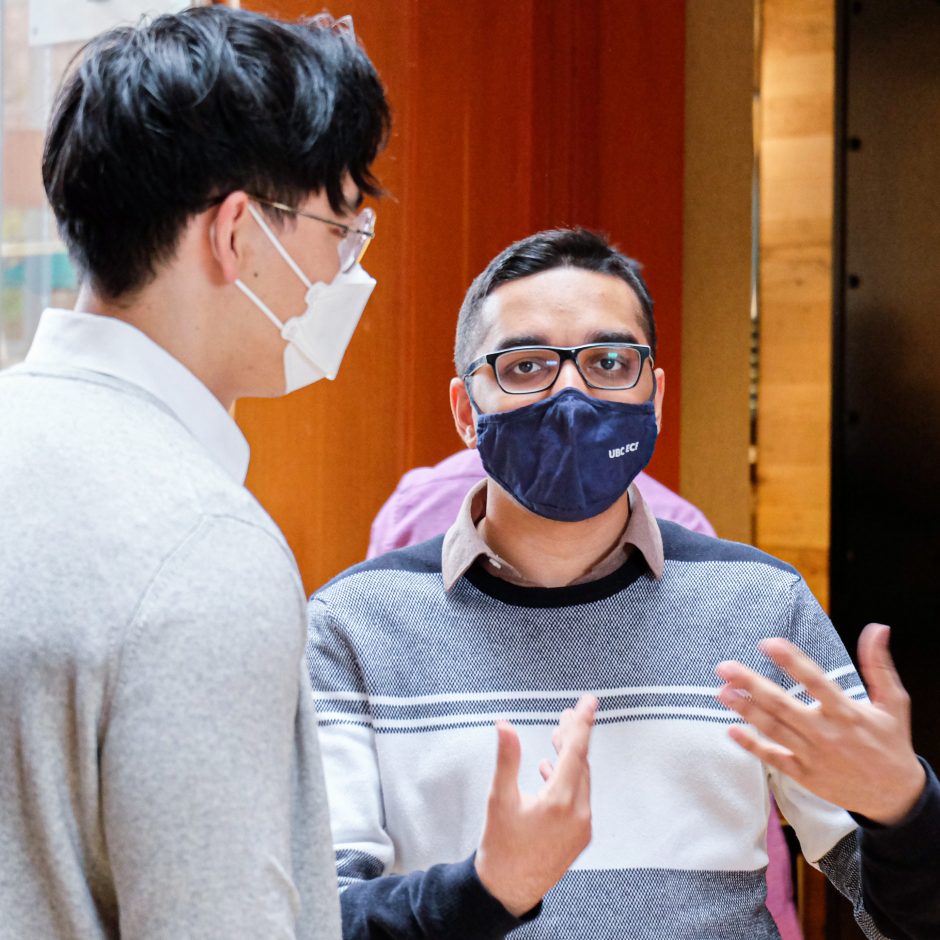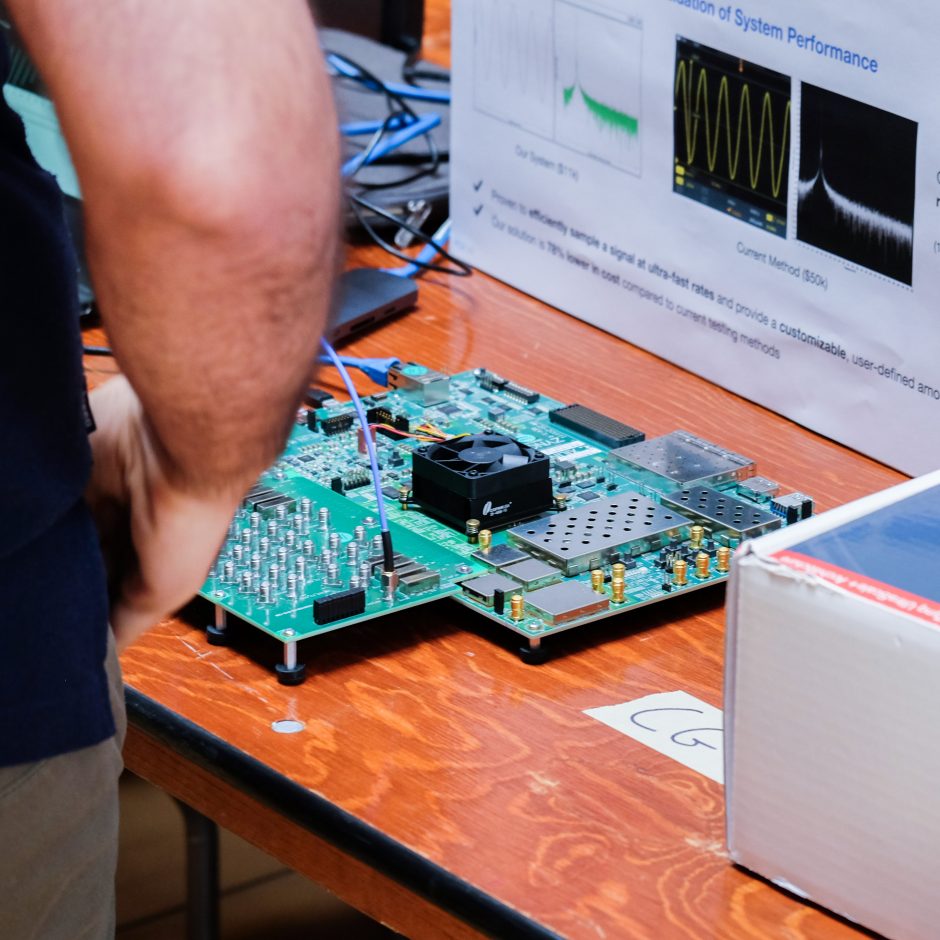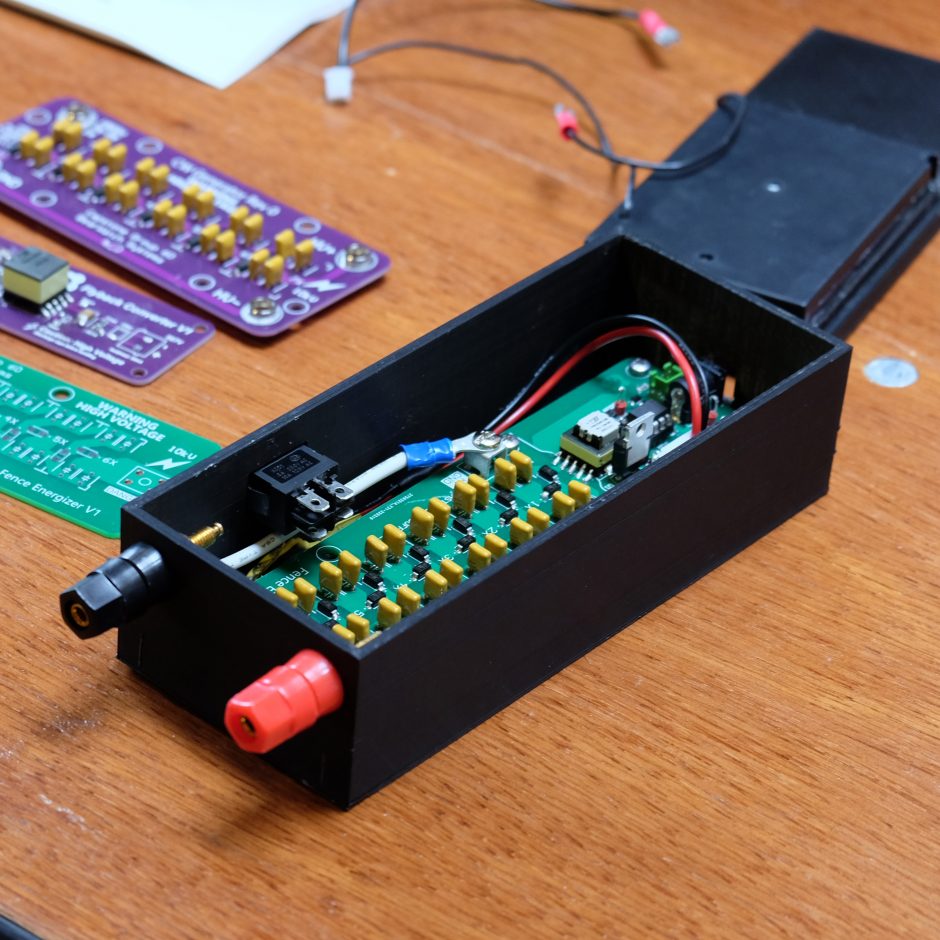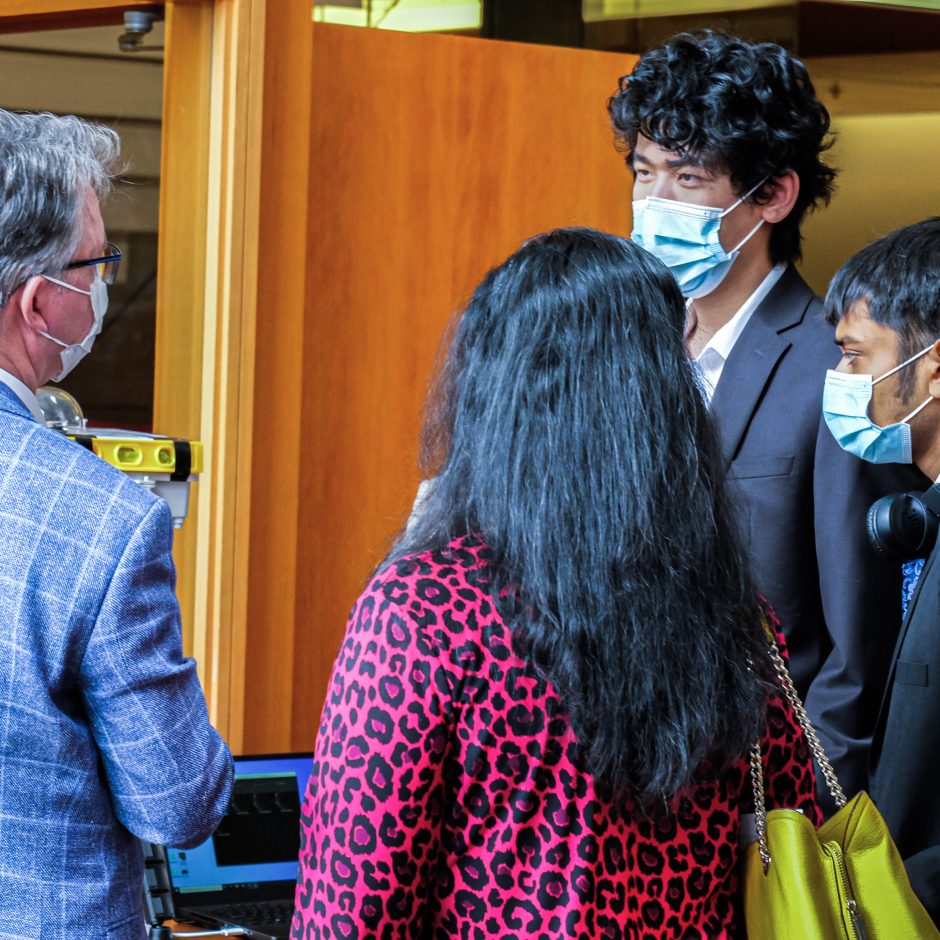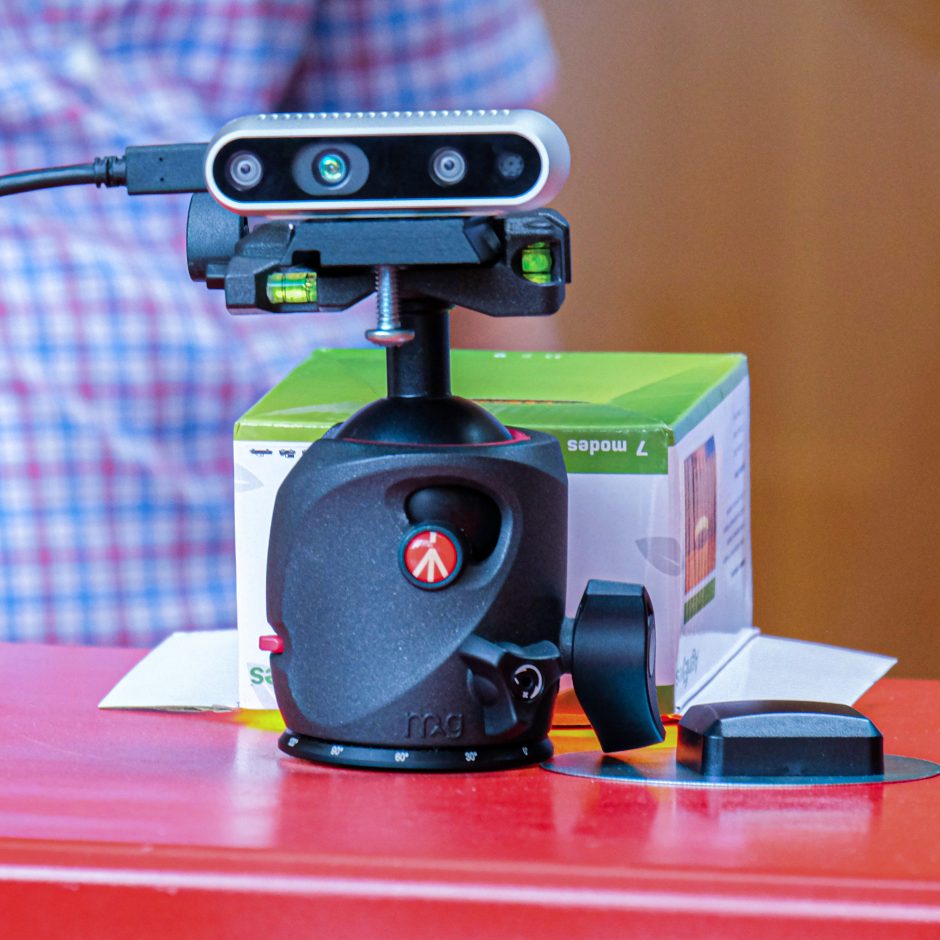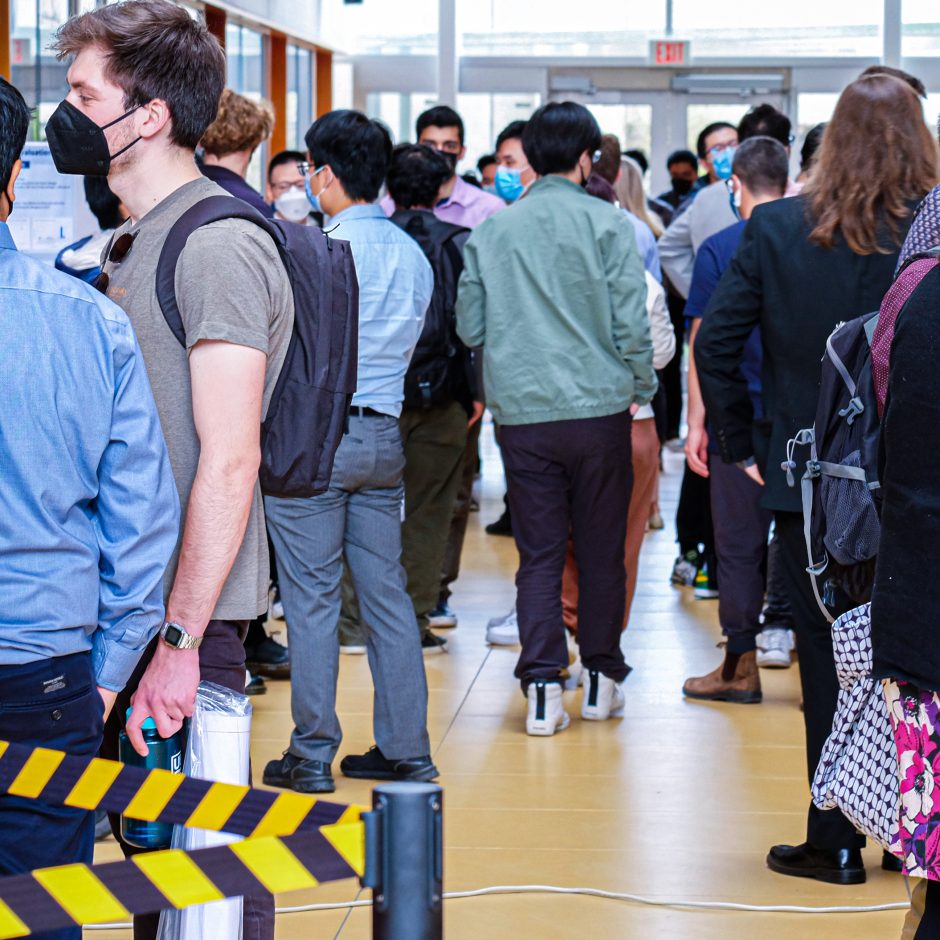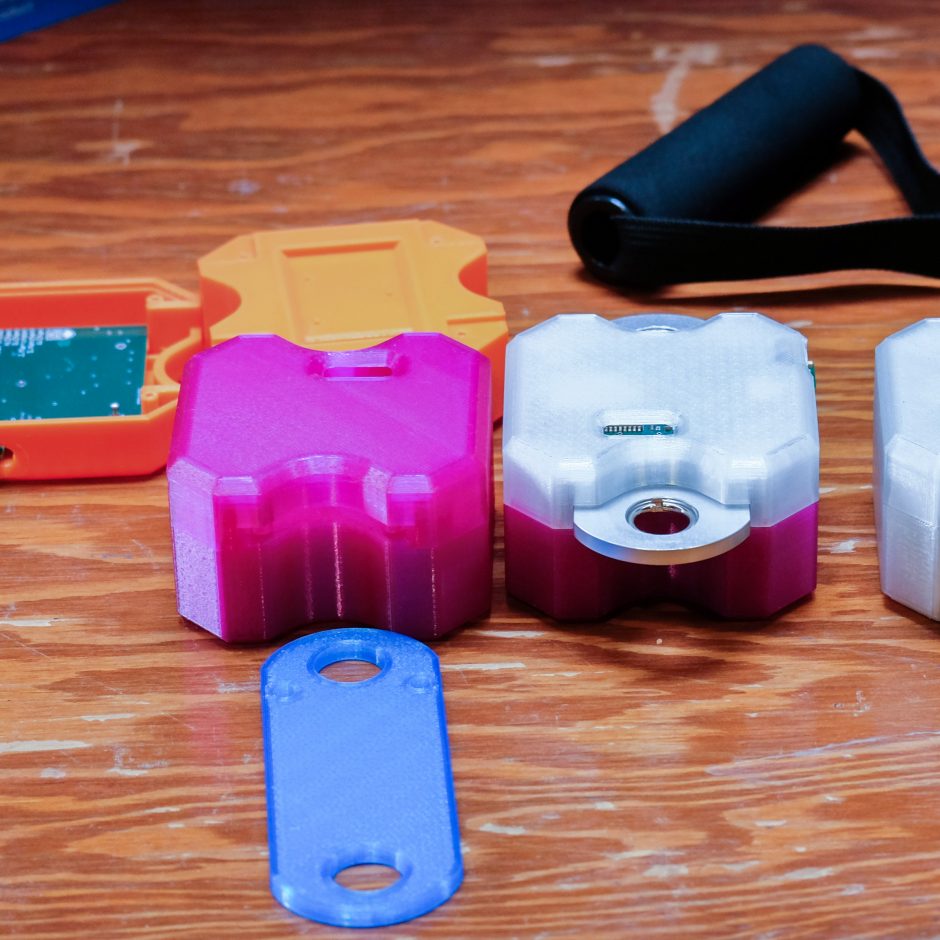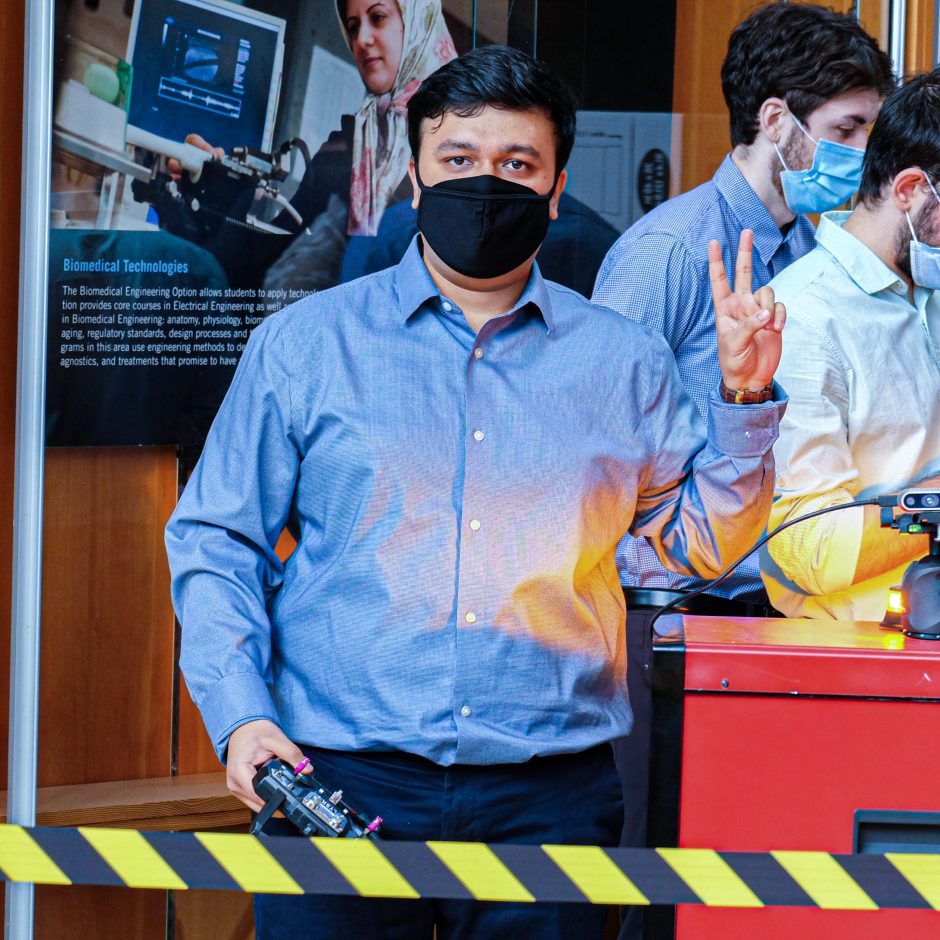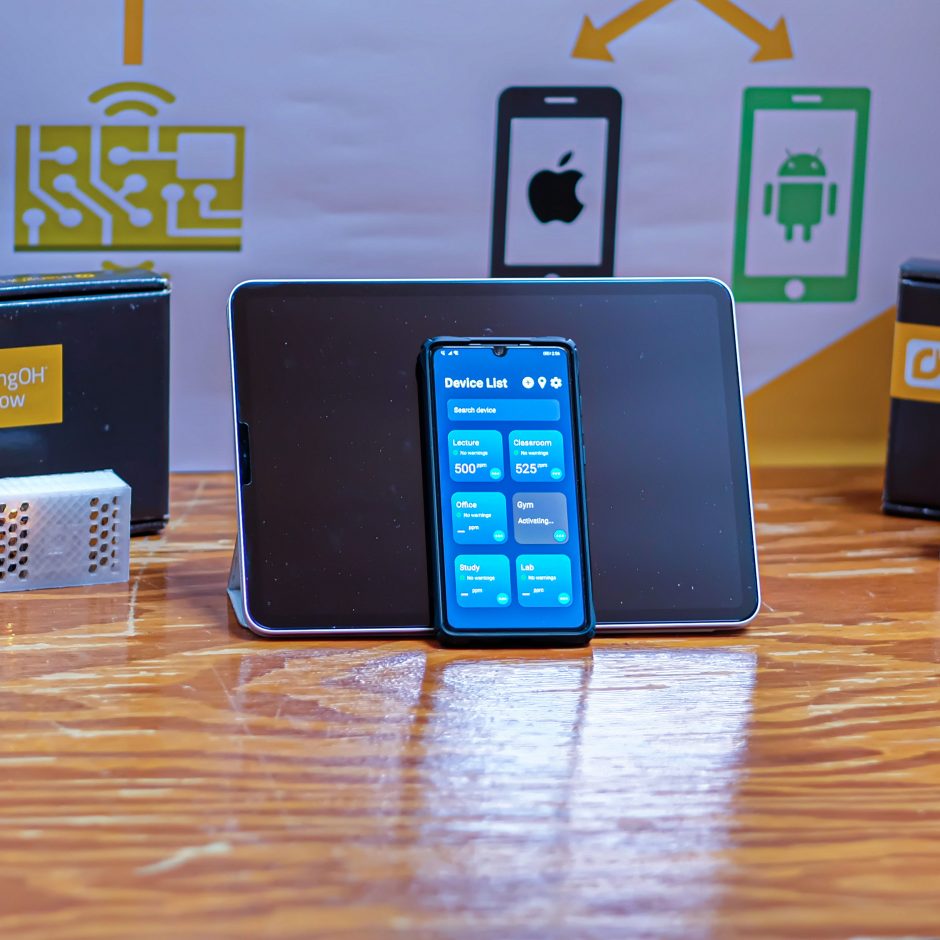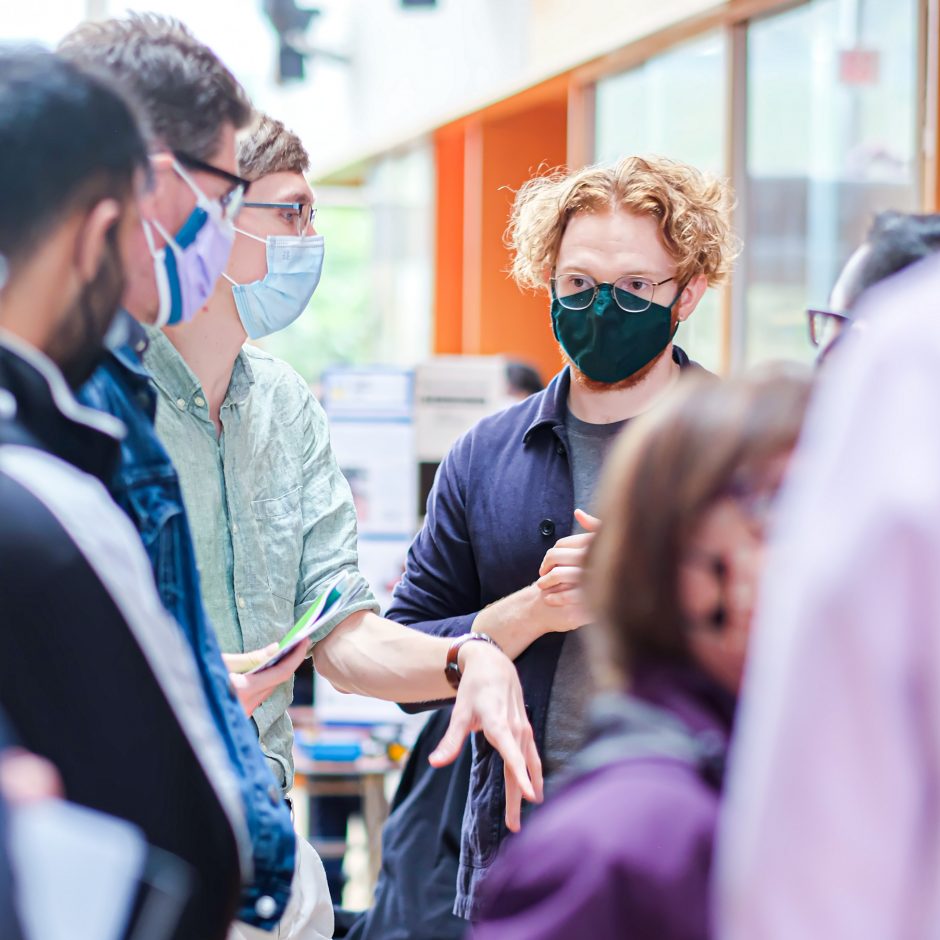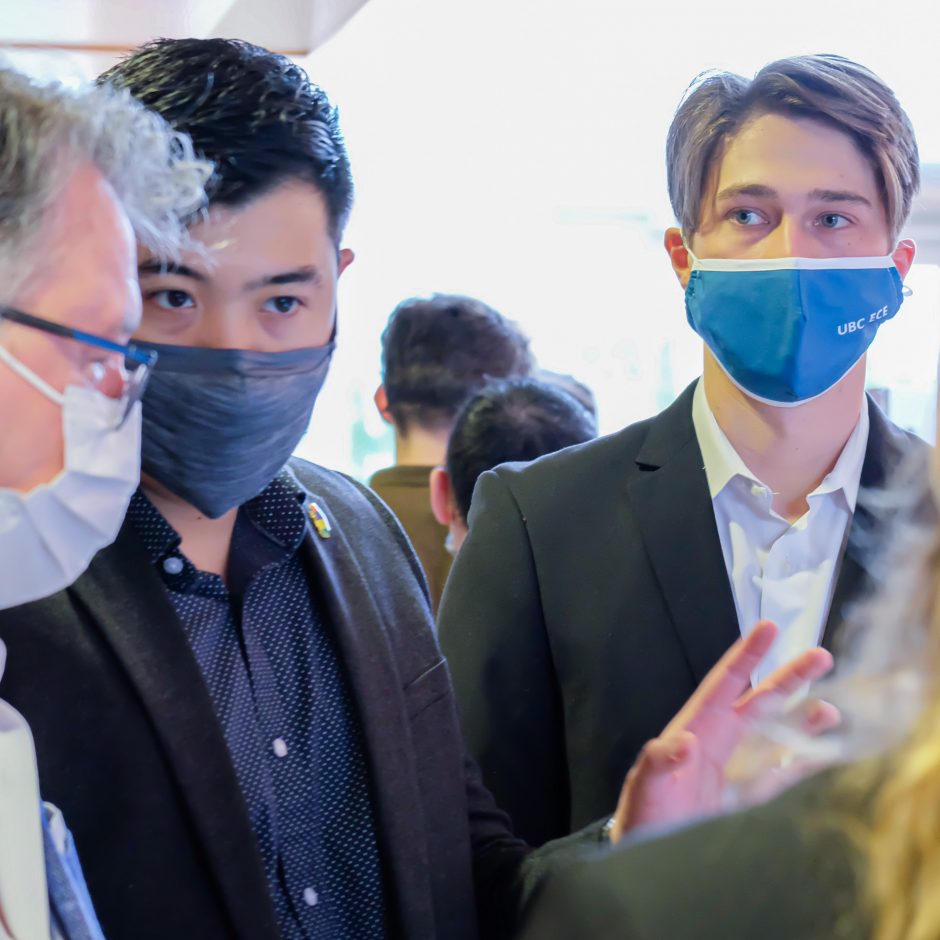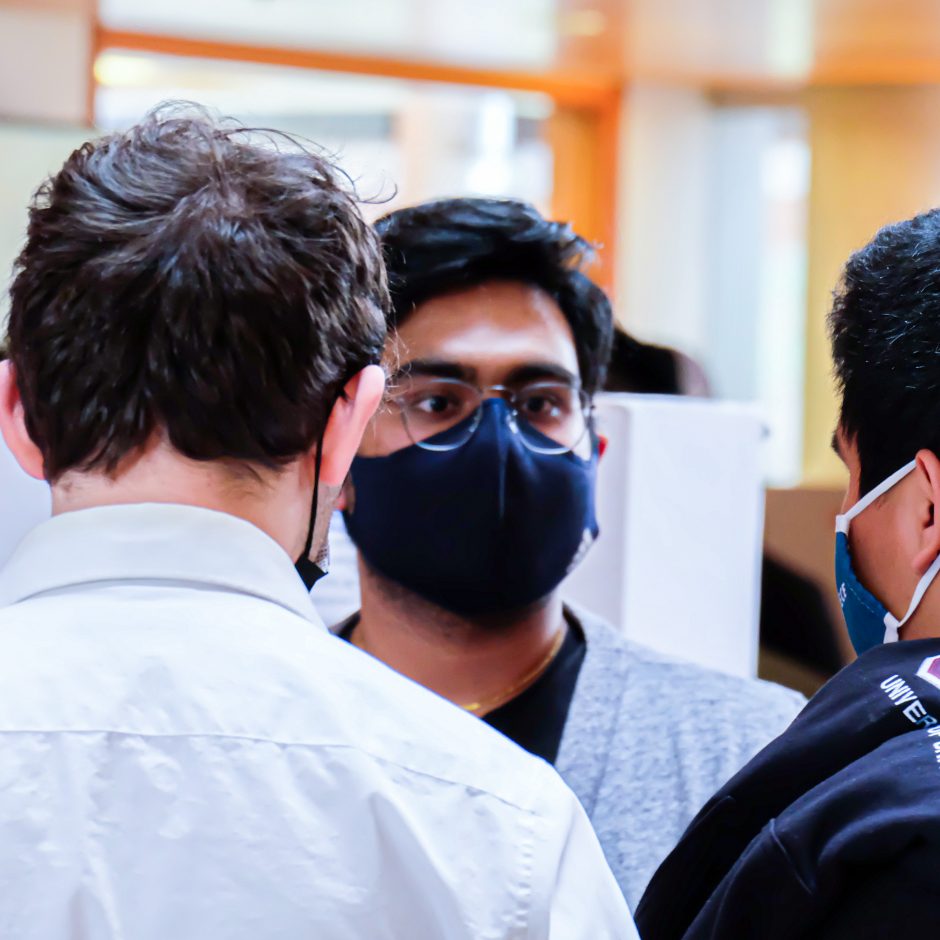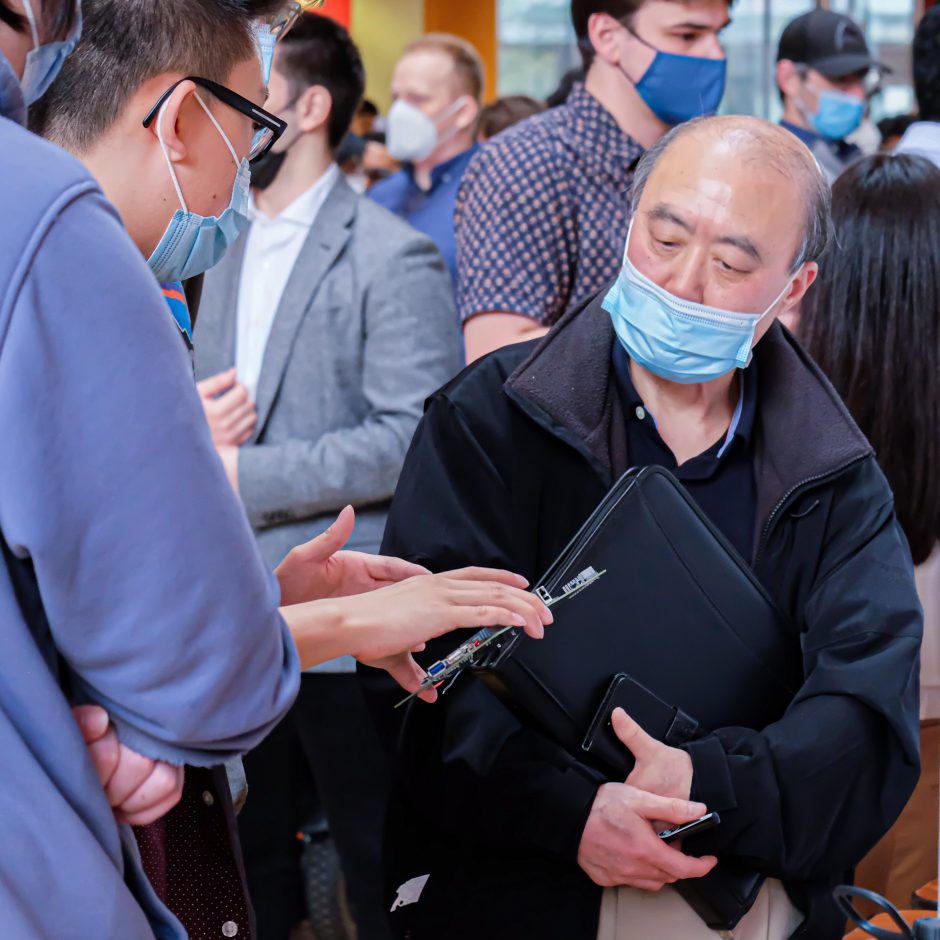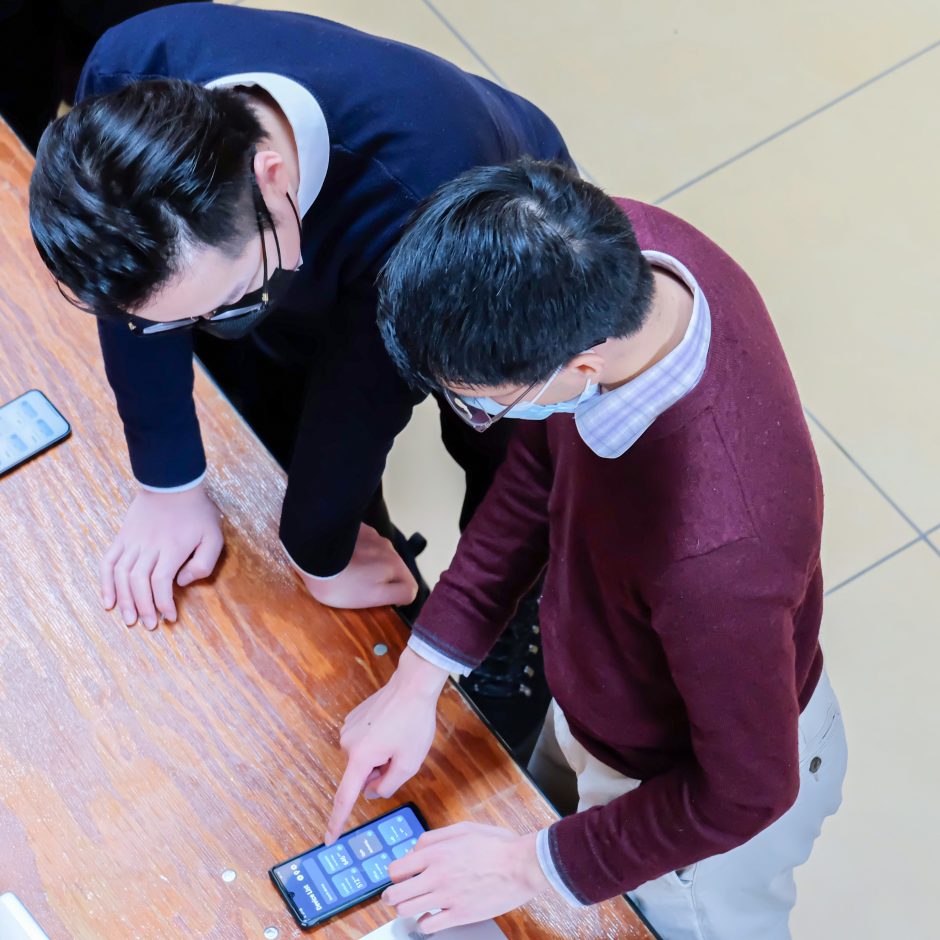Thank you to everyone who attended Design and Innovation Day! It was wonderful to see the results of a year of effort and teamwork from ECE’s students. Congratulations, everyone!
Design & Innovation Day was an in-person event showcasing our electrical and computer engineering Capstone projects for 2022. This event was the culmination of 8 months of work where our engineering teams solved technical design challenges from industry and community partners. We also wish to highlight two groups of exceptional teams: our Faculty Awards recognize the best overall projects and the Best Video Awards recognize our teams’ exceptional communication skills.
The winners of the Best Video competition, the Faculty Awards are featured below.
Faculty Award Winners
The faculty awards recognize outstanding projects as selected by all 9 Capstone instructors. In addition to exceptional engineering design, teams also display strengths in professionalism, communication, management, and / or impact on their partner’s organization.
Project Name: Hardware & Software biofeedback for Physiotherapy
Project Client: UBC Tendon Injury Research Group
Project Abstract: Long-term adherence to remote physiotherapy is statistically low. We’ve developed a real-time biofeedback hardware and software package to assist home-based physical therapy. PhysViz supports long-term adherence to rehabilitation exercises as well as allowing clinicians to provide real-time feedback and prescription adjustments, leading to better prognosis.
Check out our feature “Capstone Perspectives” interview, where we took a deeper dive into this award-winning capstone team and their amazing work!
Project Name: Monitor Nature with AI Automatic Change Detection
Project Client: Korotu Technology
Project Abstract: The primary outcome of this project is to create a mobile application and a back-end solution for detecting deforestation changes using AI. Users can select a location on the map and track deforestation changes between different years. Users can also add locations to their watchlist to receive automatic notifications if a significant amount of deforestation has happened in that area. The land cover classification of locations is performed using deep learning. The client’s interest in this project stems from its vision of creating sustainable natural climate solutions that are easily accessible by the general public. The target audience for this project includes individuals and communities interested in tracking the change in land use in the area.
Although there are already existing products regarding natural change detection, they are not easily used by the general public. These tools are used by governments and provinces to monitor changes at large scales. A publicly available, easy-to-use nature-monitoring app has the potential to help protect places that rely on clean air and biodiversity.
Check out our feature “Capstone Perspectives” interview, where we took a deeper dive into this award-winning capstone team and their amazing work!
IoT sensor to improve learning and focus in classrooms
Project Client: Airtame ApS
Project Abstract: “IoT sensor to improve learning and focus in classrooms” is the project that our team (SF-043) has undertaken. The purpose of this project was to design a solution that will aid educators in making decisions and adjustments based on environmental classroom conditions. Studies have shown that classroom environmental conditions play a key role in optimizing student learning.
This project aims to provide actionable recommendations and meaningful representation of the conditions within a classroom setting through the use of IoT sensor hardware. The sensing hardware that our group has designed is focused on sensing and reporting the temperature, humidity, and CO2 environmental conditions within a classroom setting.
Check out our feature “Capstone Perspectives” interview, where we took a deeper dive into this award-winning capstone team and their amazing work!
Best Video Winners
The best video awards recognize our teams’ exceptional ability to communicate their technical design challenge and project’s impact to a general audience. A short list of videos is selected by the Capstone students with the final winners selected by a panel of judges representing diverse perspectives.
First Prize: Slicing-Based Debugging for Java / Android Development Environments
Project Client: UBC ECE, ReSeSS Research Lab, PI: Prof. Julia Rubin.
Our team has worked with the ReSSeS lab to integrate an innovative debugging tool called the Slicer4J Plugin. Slicer4J is a dynamic program analysis tool launched from a command line that allows users to select a statement and take a slice of the program execution to find all the lines which impact that statement. It enables analysis of a full execution of a program with a bird’s-eye view as opposed to the moment-in-time views that are common with traditional debugging tools. The objective of this project is to produce a functional, intuitive, and simple-to-use plugin for IntelliJ IDEA that utilizes the Slicer4J tool.
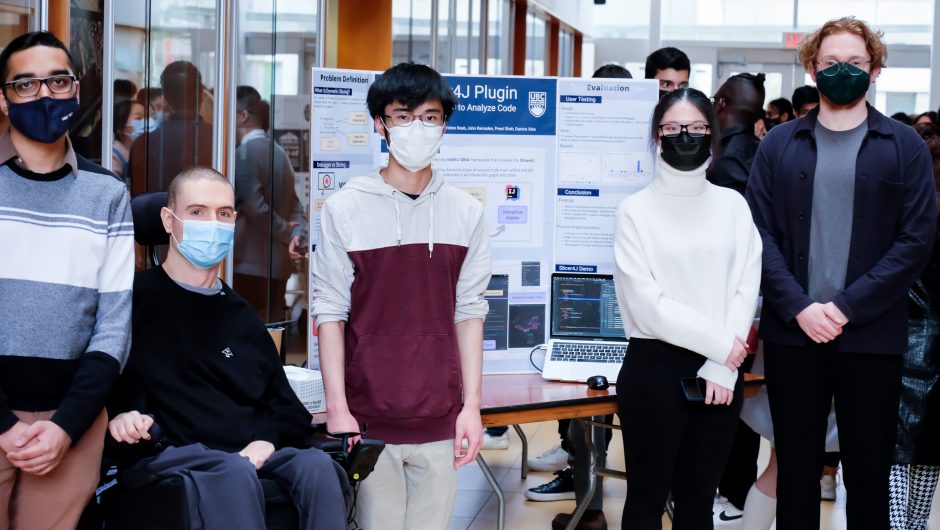
Danica Xiao
Tristen Raab
Preet Shah
David Fong
John Ramsden
Second Prize: IoT sensor to improve learning and focus in classrooms
Project Client: Airtame ApS
“IoT sensor to improve learning and focus in classrooms” is the project that our team (SF-043) has undertaken. The purpose of this project was to design a solution that will aid educators in making decisions and adjustments based on environmental classroom conditions. Studies have shown that classroom environmental conditions play a key role in optimizing student learning.
This project aims to provide actionable recommendations and meaningful representation of the conditions within a classroom setting through the use of IoT sensor hardware. The sensing hardware that our group has designed is focused on sensing and reporting the temperature, humidity, and CO2 environmental conditions within a classroom setting.
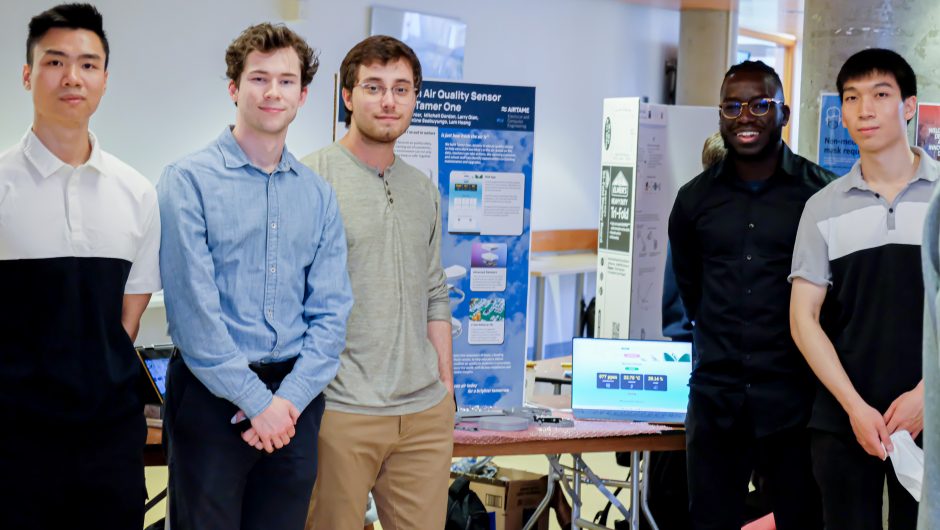
Mitchell Gordon
Matthew Fournier
Lam Hoang
Valentine Sebuyungo
Lary Qian
Third Prize: Hardware and Software Biofeedback for Physiotherapy
Project Client: UBC Tendon Injury Research Group
Long-term adherence to remote physiotherapy is statistically low. We’ve developed a real-time biofeedback hardware and software package to assist home-based physical therapy. PhysViz supports long-term adherence to rehabilitation exercises as well as allowing clinicians to provide real-time feedback and prescription adjustments, leading to better prognosis.
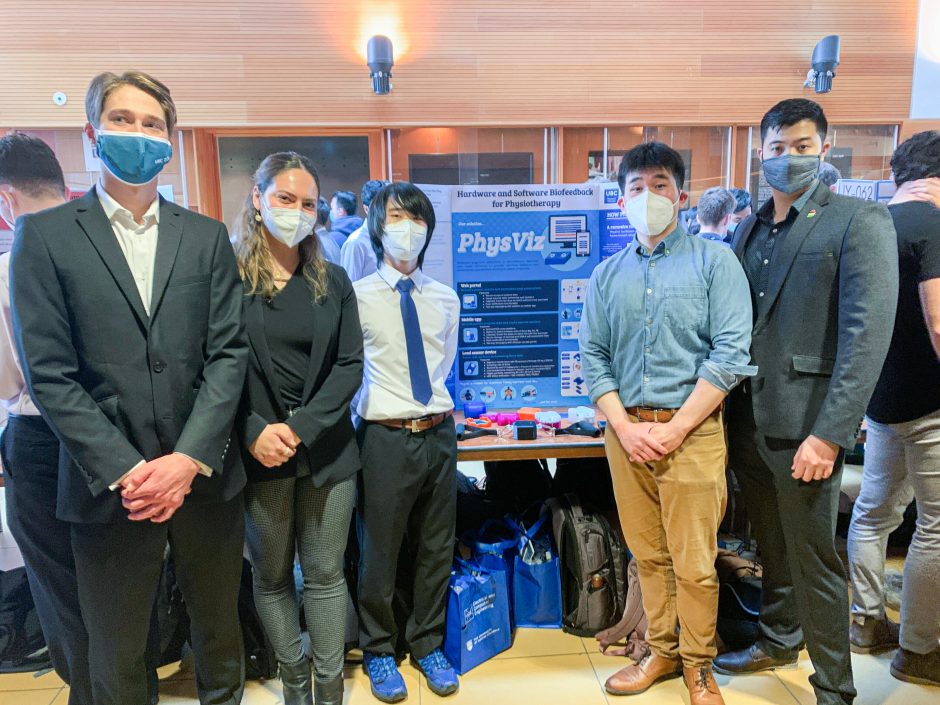
Members
Warren Chan Wan
Stephanie Natcheff
Gabriel Chen
Hugh Chen
Jaiden Martinson-Hatt
Explore All 2022 Capstone Projects
Enhance How We Do Things
Facilitate Personal and Community Connection
Improve How We Make Things
Increase Safety & Reduce Risks
Design and Innovation Day Photo Gallery
Photos by Gabriel Chen Xiao Ming
